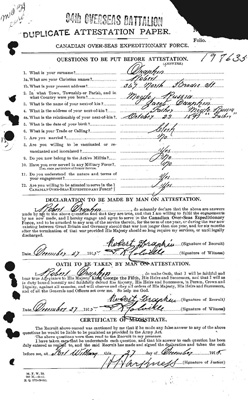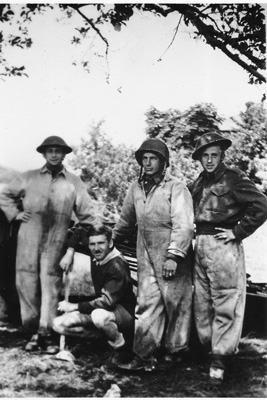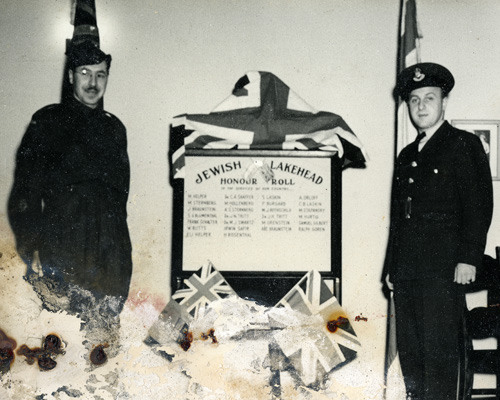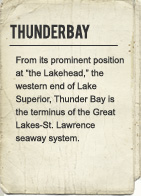Military Service
A handful of Jewish men from Port Arthur and Fort William enlisted in the First World War. Robert Drapkin of Fort William enlisted in 1915 and served in the 94th Overseas Battalion. Myer “Max” Barkoff re-enlisted in the home guard after an initial six months of service overseas, following his discharge because of damaged hearing. Meyer Rothschild had moved to Port Arthur from Montreal to work as a mining engineer. In 1916 he enlisted in the 141st Battalion. Charles Rosen was a private in the Canadian Engineers but saw no combat due to a leg injury.
Captain Melville “Mally” Orenstein was listed as the first Jew from Fort William to enlist in the armed forces during the Second World War and received mention in the King’s Honour Roll for his service. Murray Dodick served in the Canadian Armed Forces and was stationed in Vancouver. Lieutenant Hyman Rosenthal, who was raised in Port Arthur, was killed near Nijmegen, Holland on 9 February 1945. Bernard Webber, an ordinary seaman from Fort William, was also listed among the casualties of the Second World War. Saul Laskin served as a Captain in the occupying army in Germany. He recalled in an interview the profound impact of visiting the Bergin Belsen camp after the Allied liberation of the Nazi concentration camps.
Not all of the servicemen served in combat roles, however. Samuel Joel Shaffer served as a private in the army and received a Canadian Volunteer Service Medal for his contributions to the home guard. Cecil Shaffer, his uncle, was an officer in the Dental Corps. Dr. Joe Tritt and Dr. Jack Tritt also served in the Dental and Army Medical Corps respectively. Many soldiers also received their basic training in the region. Mandy Helper was a pilot officer and flight lieutenant in the RCAF Special Reserve.
The CANCAR Company in Fort William was a major manufacturer of Hurricane and Helldiver aircraft during the Second World War and the nearby proximity to RCAF flight training schools made Fort William a major aviation centre. Bombardier took over the company after the war and closed the plant. There was also an interment camp for German POWs outside of Fort William, where captured soldiers worked in lumber gangs before being repatriated in the late 1940s. The German POWs were escorted to Port Arthur to have their eyes examined and glasses replaced if necessary. Alex Devon, who was the local optometrist, recalls looking after them during those years. It must have been difficult for a Jew to provide those services to German servicemen during the war.










